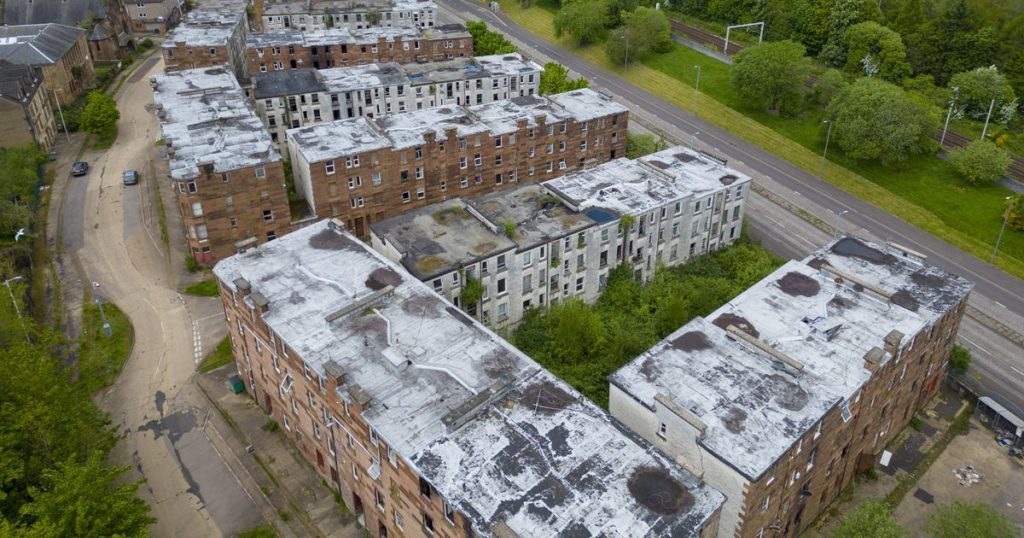The Clune Park estate in Inverclyde, Scotland, was largely abandoned since 1997 and had gained a reputation as ‘Britain’s Chernobyl’ due to its derelict state, with smashed glass, litter, and burnt properties. Marshal Craig, a 70-year-old resident, refused to move despite the area’s condition, saying he found it ‘idyllic’ and was ‘perfectly fine’ living there. The estate, built in 1905, comprises 430 flats and was purchased by Inverclyde Council, who planned to demolish it for long-term regeneration. Marshal was one of the few remaining residents and expressed his contentment with his home, citing its sturdy construction and nice view. He preferred not to leave, even with the area’s vandalism and fire incidents.
Marshal Craig, who lived in Clune Park for 20 years, was one of only five remaining residents on the estate. Previously, the area was home to shipyard workers, but they left in the late 1990s. Marshal reminisced about the days when more people lived in the area and expressed pride in being one of the last residents. He acknowledged the vandalism, broken windows, and fire incidents that plagued the estate but defended his decision to stay, citing the strong construction of the buildings and his attachment to the place. In January, Inverclyde Council pursued a compulsory purchase order to demolish the estate and replace it with 100-120 new homes. However, Marshal advocated for refurbishing the existing buildings to house those in need.
The Clune Park estate faced anti-social behavior, vandalism, and fire damage, with many properties left in a dire state. Marshal mentioned the challenges of late-night disturbances, broken windows, and frequent fire incidents in some parts of the estate. Despite these issues, he expressed contentment with his home, stating that the block he resided in was largely unaffected. Inverclyde Council aimed to acquire properties in Clune Park for long-term regeneration but faced slow progress and high costs. The council’s statement in 2022 reiterated its commitment to the area’s redevelopment, with ongoing discussions to achieve this goal at the earliest opportunity.
The Clune Park estate had been vacant for several years and had fallen into disrepair, resembling a post-apocalyptic scene with its abandoned buildings and neglected surroundings. In 2020, one property on the estate was sold for as little as £6,000, reflecting the decline in value and desirability of the area. Marshal’s refusal to move symbolized a sense of resilience and attachment to his home despite the challenges faced by the remaining residents. The state of Clune Park highlighted broader issues of urban decay and regeneration efforts in neglected areas, with Inverclyde Council’s plans to revitalize the estate facing obstacles and delays.
Marshal’s determination to remain in Clune Park underscored the complex dynamics of urban development, community resilience, and individual choices in the face of adversity. His loyalty to his home, despite its dilapidated state and the surrounding challenges, reflected a deep connection to the place and a desire to preserve its history and character. The clashes between personal attachments, municipal plans for regeneration, and broader societal issues of neglect and abandonment encapsulated the complexities of urban governance and community relations. Inverclyde Council’s efforts to address the issues in Clune Park highlighted the ongoing struggles of revitalizing neglected spaces and balancing the interests of residents and broader development goals. Ultimately, the story of Clune Park epitomized the intricate interplay between place attachment, urban decay, and regeneration efforts in modern cities.


